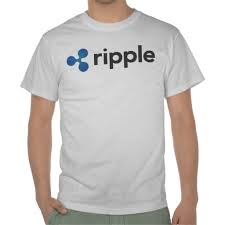
by: Owen Gunden
2013-05-25
tags: bitcoin
If you're on the bitcoin scene, you've probably heard of this ripple thing by now. They have t-shirts.

They also had a booth at the recent bitcoin conference in San Jose, which was all abuzz with activity. In fact, I spent a fair amount of time there, asking questions of the developers to try and clarify what ripple is and why I would want to use it. I figure myself a pretty smart fellow, so I should be able to understand why all these rich guys are throwing money at this thing.
In April, OpenCoin received investments from Andreessen Horowitz, FF Angel IV, Lightspeed Venture Partners, Vast Ventures and Bitcoin Opportunity Fund. The new angel round, just one month later, comes courtesy of Google Ventures and IDG Capital Partners.
What I have concluded is the following:
Ripple has some neat technology.
There is unfounded controversy about the business model of OpenCoin, the company behind ripple.
There is unfounded controversy about the fact that the code is not quite fully open source.
All of this controversy distracts from serious design flaws in ripple indicating that the creators don't quite "get" it.
I'll go into more depth on each of the points.
Ripple's "distributed ledger with consensus" design is neat and it brings two advantages over bitcoin: (1) it only takes a second or two to confirm a transaction, and (2) it doesn't require proof-of-work (electricity consumption) for the security of the network.
The other technology that is neat is the decentralized exchange built into ripple. Unlike in bitcoin, trading of fiat IOUs, etc., actually happens at the protocol level. This means peer-to-peer, no central point of failure for trading. Very cool, though still an open question as to how well it scales.
People are suspicious of things they aren't used to. OpenCoin's business model is one such thing. There is no revenue stream to acquire from the ripple product itself, which is open source and free to use. So OpenCoin has positioned themselves as the largest holder of XRPs, the fixed-supply currency built in to ripple. The only way they make money is by trading the XRPs they've hoarded for other currencies (or goods). Some people don't like this, or are scared of it, because it's different. But it's not really all that different than a successful startup which IPOs and makes it's founders rich.
They have open sourced parts of the code, but not the server yet. However, I was able to acquire access to the source code simply by asking. That's because the reasons they haven't open sourced the code yet are unimportant details; not because it's actually being kept secret.
Ripple is based on a network of trust. The idea is to make it easier for currencies (including traditional ones such as USD) to flow. Ripple users can deposit funds into a gateway, trust that gateway, and then begin to trade IOUs from that gateway. But the rub is this: IOUs from one gateway are treated as equivalent in value to IOUs from every other gateway of the same currency. In particular, when you trust two gateways of the same currency, other users in your trust network can "ripple" IOUs through you. That means your IOU balances might shift from one gateway to another without you initiating anything or even knowing about it. So if one gateway starts to have problems to where it looks like a risky place to store your funds, ripple users who are paying attention (and know how to use ripple better than you, see below) will take all your "good" IOUs in exchange for the "bad" ones issued by the problematic gateway. When you wake up the next morning, you may find yourself to be "holding the bag".
When I pressed the OpenCoin guys on this issue, the answer was that this behavior is something that you can turn off at the protocol level. It's just not in the UI yet, apparently. I was surprised when I learned this, because it indicates that clearly none of the creators thought this was a problem.
But since it's possible to disable this feature at the protocol level, maybe the ripple guys can salvage the ship by turning it off by default. Then it would require actively doing something to shoot yourself in the foot (instead of just using ripple). What I don't know is how much the functionality of ripple depends on this, er, "feature".
The total value of all XRPs outstanding is some $1.6 billion. This is crazy. Nobody uses ripple for anything other than speculating in ripple. If you think this is true of bitcoin, you don't know much about bitcoin.
I personally received nearly 100000 XRPs (worth a pittance at the time, now worth $1500) just by posting my ripple address in a forum thread. I'm selling it all for bitcoin.
Be careful out there.